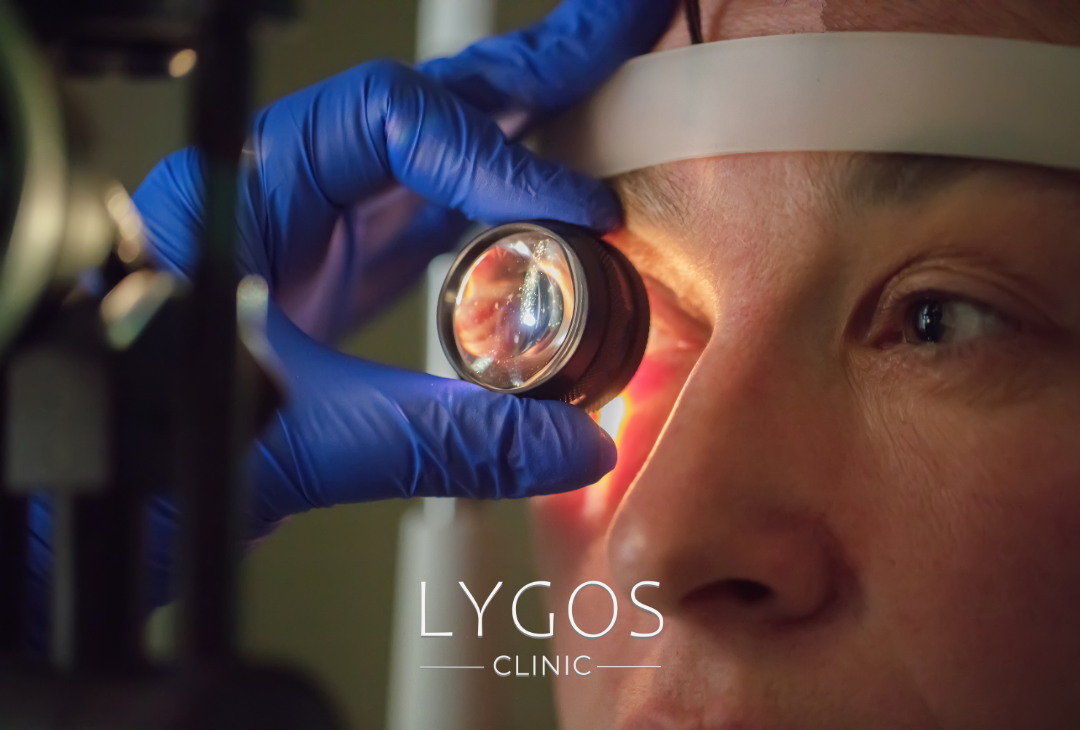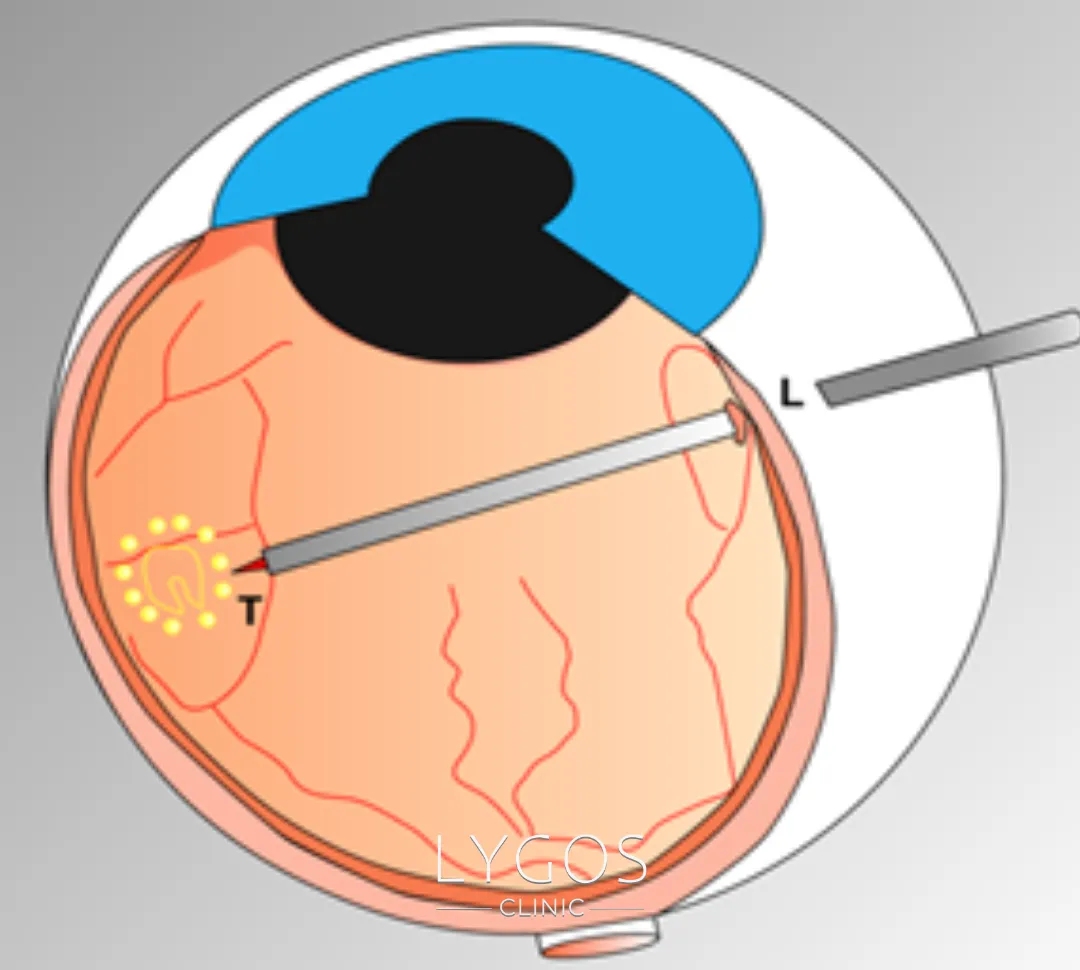What is LASIK Eye Surgery?
For many people, LASIK eye surgery provides the possibility to greatly reduce or completely eliminate the use of glasses or contact lenses. Although the duration of the surgery is quite short, the results can be long-term and permanent. This can result in clearer and sharper vision without the need for glasses or contacts. LASIK is a popular treatment option that significantly improves eye health and quality of life.
Get a Free Consultation
Choose Your Topics

How is LASIK Eye Surgery Performed?
LASIK eye surgery is a procedure that takes about half an hour. Before the operation, eye drops are applied to numb the patient’s eyes. Then, the eyes are asked to be kept open for a certain period of time and preparation is made for the laser application. At this stage, a small flap is created on the surface of the cornea and folded backwards.
Laser beams ensure that the corneal tissue is removed at appropriate rates. When this process is completed, the flap is placed back in place. The operation is completed without stitches and bandages. This ensures that the healing process is fast and comfortable. During the operation, the patient is asked to focus and look at a specific light source. This ensures that the cornea remains stable during the laser application and increases the precision of the shaping process.
In addition, an eye retractor is used to keep the patient's eye steady. This helps to apply the laser effectively. The recovery process after LASIK eye surgery is usually fast. Patients can return to their normal daily activities in a short time. This modern and effective method has the potential to greatly reduce or completely eliminate the use of glasses or contacts. This significantly improves patients' quality of life.
Who is Suitable for LASIK Eye Surgery?
LASIK eye surgery is commonly performed to correct refractive errors such as myopia (nearsightedness), hyperopia (farsightedness) and astigmatism. These problems can cause impairments in the eyes’ ability to focus. Therefore, the use of glasses or contact lenses may become necessary.
By correcting these problems, LASIK can help reduce or completely eliminate the use of contacts or glasses. LASIK eye surgery is generally suitable for people who have reached the age of 18 and whose eye refractions remain stable. This means that refractive errors do not change for several years. LASIK can also correct other visual impairments such as presbyopia (age-related nearsightedness).
However, other surgical options may need to be considered for such cases. An ophthalmologist should be consulted to determine who is suitable for LASIK eye surgery. This makes it more practical to measure refractive errors. Not everyone is a suitable candidate for LASIK. Therefore, other eye surgery options should also be considered.


Benefits of LASIK Eye Surgery
- It eliminates problems such as myopia, hyperopia and astigmatism.
- Corrects the inability of the eye to refract light.
- It is completed in a short time.
- Does not require hospitalization.
- Lenses or glasses are usually not needed after LASIK eye surgery.
- The patient begins to see more clearly after the procedure.
Risks of LASIK Eye Surgery
- Large pupils: Side effects such as night vision problems and light glare may increase.
- Instability in vision: Constant changes in eye grades may negatively affect the success of the surgery.
- Thin or irregular cornea: If the cornea is not thick enough, the surgery may not be performed safely.
- High refractive error: A very high degree of myopia or hyperopia may not be suitable for LASIK.
- Hormonal changes: Hormonal changes can affect the structure of the eye. This can negatively affect the healing process.
- Dry eyes: Insufficient moisturizing of the eyes can complicate the healing process after surgery.
- Advanced age factor: Eye problems associated with old age may reduce the effectiveness of the surgery.
- Degenerative or active autoimmune disorders: Such diseases can negatively affect the healing process and the success of the surgery.
- Rheumatoid arthritis: This disease, which affects connective tissue, can make the healing process of eye surgery risky.
- Damage to immunity: Immunosuppressive drugs or a lowered immune system caused by HIV can increase the risk of infection.
- Severe myopia: Very high degrees of myopia may not be suitable for lasik eye surgery.
- Eye injuries or various eye diseases: Existing damage or diseases of the eye may reduce the success rate of the surgery.
- Allergic reaction: Allergic reactions to the medicines or materials used may occur.
- Infection: There is a risk of infection of the eye, but this is rare.
- Bleeding: There may be slight bleeding in the eye during or after surgery.

After LASIK Eye Surgery
It is very important to have regular check-ups after LASIK eye surgery. Your doctor will call you for a follow-up examination within a few days after the surgery. At this examination, the condition of your eyes will be assessed and checked for any complications. Check-ups will continue regularly for six months.
After LASIK eye surgery, you may experience itching, burning, discomfort and watering in your eyes. In this case, you should avoid scratching your eyes. Scratching may damage the operation area and negatively affect the success of the surgery. It is also common to experience blurred vision and mild pain after surgery. There is no need to panic in such cases. Your doctor may give you painkillers or eye drops to help you relax.
You may also be asked to wear goggles to protect your eyes. These protective goggles will help you to protect your eyes against impacts to your eyes. Your vision is not expected to be clear immediately after surgery. It may take 2 to 3 months for full recovery and clear vision. You should avoid using cosmetic products on your eyes for at least 2-3 weeks. After this period, you should consult your doctor who performed the operation before you start using them again. It is important to avoid products that can damage the surgical area.
You can continue with sports activities such as light walking. However, you should avoid contact and strenuous sports such as basketball and soccer. You should also avoid entering chlorinated water and using the jacuzzi for a few weeks. Your doctor who performed the surgery will give you detailed information about when you can return to your daily life. Being careful and conscious after LASIK eye surgery will speed up your recovery process and ensure you achieve the best results.
Blurred Vision After LASIK Eye Surgery
Your eyes start to heal immediately after LASIK surgery and the healing process is quite fast. However, there is a possibility of occasional blurred vision in the first few weeks or a month. Blurred vision after LASIK eye surgery should not be a cause for concern. It is part of the normal healing process.
The healing process of your eyes will be closely monitored during the 6-month follow-up appointments you schedule with your doctor after the surgery. Thanks to these check-ups, you can witness that your eyes are now completely healed. You should be patient and take care to follow your doctor’s instructions. In this way, you can ensure that your vision quality reaches the best level.


Lasik Eye Surgery Costs
Another curious issue about LASIK eye surgery is the cost of this operation. Lasik eye surgery cost may vary depending on the procedure performed and the health institution where the procedure is performed.
It is important for individuals considering this surgery to have a detailed discussion with a specialist, taking into account their own health status and risk factors. The information and support you will receive from health institutions and experts will help you make the right decision in this process.
Frequently Asked Questions About PRK LASIK Eye Surgery
BLOG

At What Age Chin Fillers Are Made? | Advantages and Risks
Chose Your Topic At What Age Chin Fillers Are Made? Chin fillers are a popular aesthetic procedure for those who

Recovery Process After Facial Aesthetics
Chose Your Topic Recovery Process After Facial Aesthetics Facial aesthetics is a series of aesthetic interventions performed to improve and

Lip Lift Surgery | Risks and Recovery
Chose Your Topic Lip Lift Surgery In today’s world, interest in aesthetic surgery is increasing day by day. Especially for





